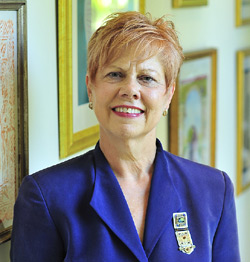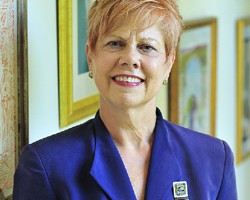YOUR FINANCIAL FUTURE / Why Longevity Should Change your Retirement Planning
By Roxanne E. Fleszar, CFP, ChFC
One of the most common reasons for hiring a Certified Financial Planner is to ascertain if you can maintain your standard of living when you retire and not run out of money if you have a long life.
According to the Society of Actuaries men who are age 65 and in good health will live to be 86.6 years old on average; women of the same age and health will live to be 88.8 years old. When we run our projections we usually assume the client will live to age 95. That may not be long enough according to Patrick Cox of Mauldin Economics where he is the editor of a technology research newsletter. He has been writing about “breakthrough technology” for over 30 years. Some of the most exciting breakthroughs today involve health care and longevity.
Two sets of independent science teams recently shared their optimism in reversing aging and even repairing injuries. One of them was the well regarded Salk Institute of Biological Studies. It is conceivable that individuals could live a relatively healthy life to 110, 120 years and even beyond that!
While most of us can’t fathom that that this is possible, it is. And it should be on the front pages of our newspapers and in social media rather than staying within the scientific community. It certainly means that major adjustments to our society that will be almost ageless.
According to Cox, age reversal is actually a simple concept; first we must acknowledge that the DNA of adults can produce biologically young offspring. Your genes in almost every cell in your body that can do this are dormant. He says that both teams of scientists are working for the same outcome by “reactivating the embryonic abilities in adult genomes to create complex, healthy and young tissues, limbs and organs. There is considerable evidence that a simple combination of gene-activating small-molecule drugs could restore embryonic healing powers in adults”.
Whoa, this is HUGE news with major implications on how we plan our lives! Instead of the current model of going to school, work and then retiring and living off of our savings and Social Security for one to two decades, it will likely mean returning to school at some point, learning new skills and obtaining a new job or several part-time positions. And we will repeat that, perhaps with time off in between positions. Many more of us will enter into life-long learning.
Perhaps after a career as a carpenter, a lawyer or a teacher, you take a subject of interest to you and turn it into an income-generating position. As others do the same, participation in online courses and classes ate community colleges and universities should soar.
Most of us recognize technology keeps changing our world and how we do our jobs. According to the Department of Labor, by age 35, most Americans have already had 8 jobs. Artificial intelligence and robotics for example will continue to replace jobs while advances in technology that are inconceivable today will create new opportunities. From a retirement planning perspective, most of us will spend less time being fully retired without earned income.
Today we look at folks saving for 30 to 40 years for retirement; we need to change our retirement planning models. Fortunately, retirement savings accounts will be able to grow and compound for 50 to 60 years which will make it less likely that folks will outlive their money even if they do live to age 115 years and beyond.
Roxanne E. Fleszar, CFP, ChFC is President of Financial Resources Management Corp, a registered investment advisory firm with offices in Key West, Boston and Naples.
[livemarket market_name="KONK Life LiveMarket" limit=3 category=“” show_signup=0 show_more=0]




No Comment